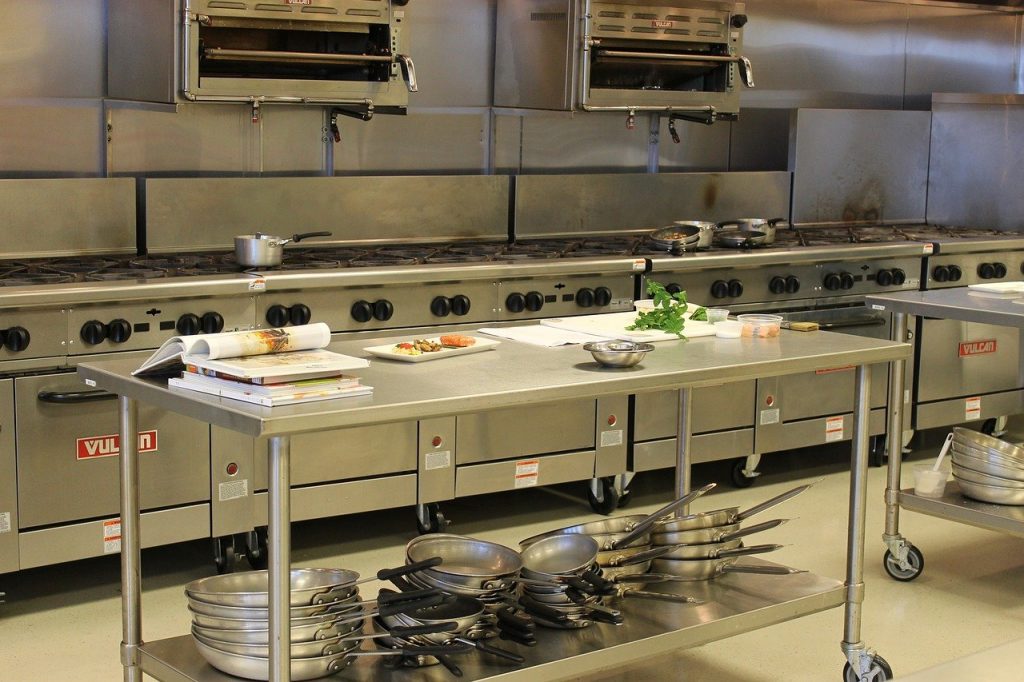Surprise inspections in a commercial kitchen can be frustrating. However, these health inspections are unavoidable and are held between 1 and 4 times each year to ensure the food products are handled and prepared according to regulations.
To handle this stressful experience, you need to be armed with a set of health regulations and food-handling requirements to grade your establishment. If the commercial kitchens do not comply with state and local health regulations, these health inspectors can ultimately look to shut down your operation.
It is a critical responsibility on your part as a hospitality owner not to get failed in health inspection grades as it could potentially lead to loss of revenue and reputation and may even halt all the operations.
Below we are listing few straightforward ways to prepare your commercial kitchen for the next health inspection and give you a proper restaurant health code checklist to avoid avoidable food safety violations.
- Know the Rules
Making sure you and your employees are knowledgeable on food safety regulations can help your establishment identify the hazards. To keep oneself updated with food codes and familiarize yourself with government and state regulations, you need to be equipped with the best practices and reference base. It is extremely important to educate yourself and your employees on food safety concerns to prevent possible contamination in equipment like the commercial dough mixer. By keeping everyone informed on the newly instated guidelines, you can implement food handling practices and essential tools to curtail the spread of bacteria and foodborne illness.
- Be Aware of the Most Common Violations
To get proper knowledge of health code violations and other safety issues, you can get help from a local health department. In this way, you can familiarize yourself with common mistakes made in commercial kitchens and include cross-contamination, personal hygiene, and internal temperature requirements as a safety measure. You need to always keep an eye on –
- Holding cooked food for many days in a danger zone
- Grease dripping from a hood system leading to pathogenic organisms
- Storing food items improperly, thus allowing cross-contamination
- Allowing pests inside the commercial kitchen
- Skipping personal hygiene steps
- Not cleaning equipment thoroughly
- Investing in professional kitchen machinery maintenance
- Develop a Maintenance Checklist
Developing a thorough kitchen maintenance checklist per compliance and health standards can lead your establishment to pass a health inspection. By undertaking all the responsible tasks among yourself and your staff of cleaning kitchen equipment, cleaning floors, emptying trash bins, storing all food eatables at proper places, well organised cold rooms & chillers, managing sanitizing tasks can ensure the kitchen hood cleaning process is properly executed. Thereby the commercial kitchen can be listed among the professional kitchens secured with safety and regulation norms, including butcher equipment. To maintain the highest standard of cleanliness in your commercial kitchen, it is incumbent on managers to regularly check if the employees complete their cleaning tasks.
- Make Sure All Kitchen Workers and Staff are Certified
One of the extremely important things in this list is to ensure that the staff and the workers you hire in your establishment are certified to handle your kitchen. They need to be properly educated in terms of safe food handling practices and extreme circumstances; you can even enrol them in various programs to educate and test your employees on specific food-related roles. You must ensure that your staff is prepared to tackle the safety questions coming from health inspectors. So, it is better to keep your employees updated on the latest food safety developments to ensure compliance in the workflow.
- Conduct Self-Inspections
Conducting regular self-inspections can also keep contamination at bay. Holding unannounced inspections at your establishment is the key to uncover potential issues. This factor will not only help keep your commercial kitchen in line with health department standards, but at varying times, it will also keep your employees more attentive to the health and safety practices daily. Check for common violations more frequently until the problem has been fully addressed. Lastly, review the results with your employees and discuss the corrective actions for any possible violations.
Conclusion
Keeping all these above tips in mind, you can make advanced preparation, and include strict food safety guidelines, thus ensuring your kitchen is prepared for the unexpected. These health inspections are meant to reduce the spread of food-borne illnesses and ensure the safety of your customers. So, take immediate steps for your establishment by following the proper food safety guidelines and receive a passing grade down the line.

